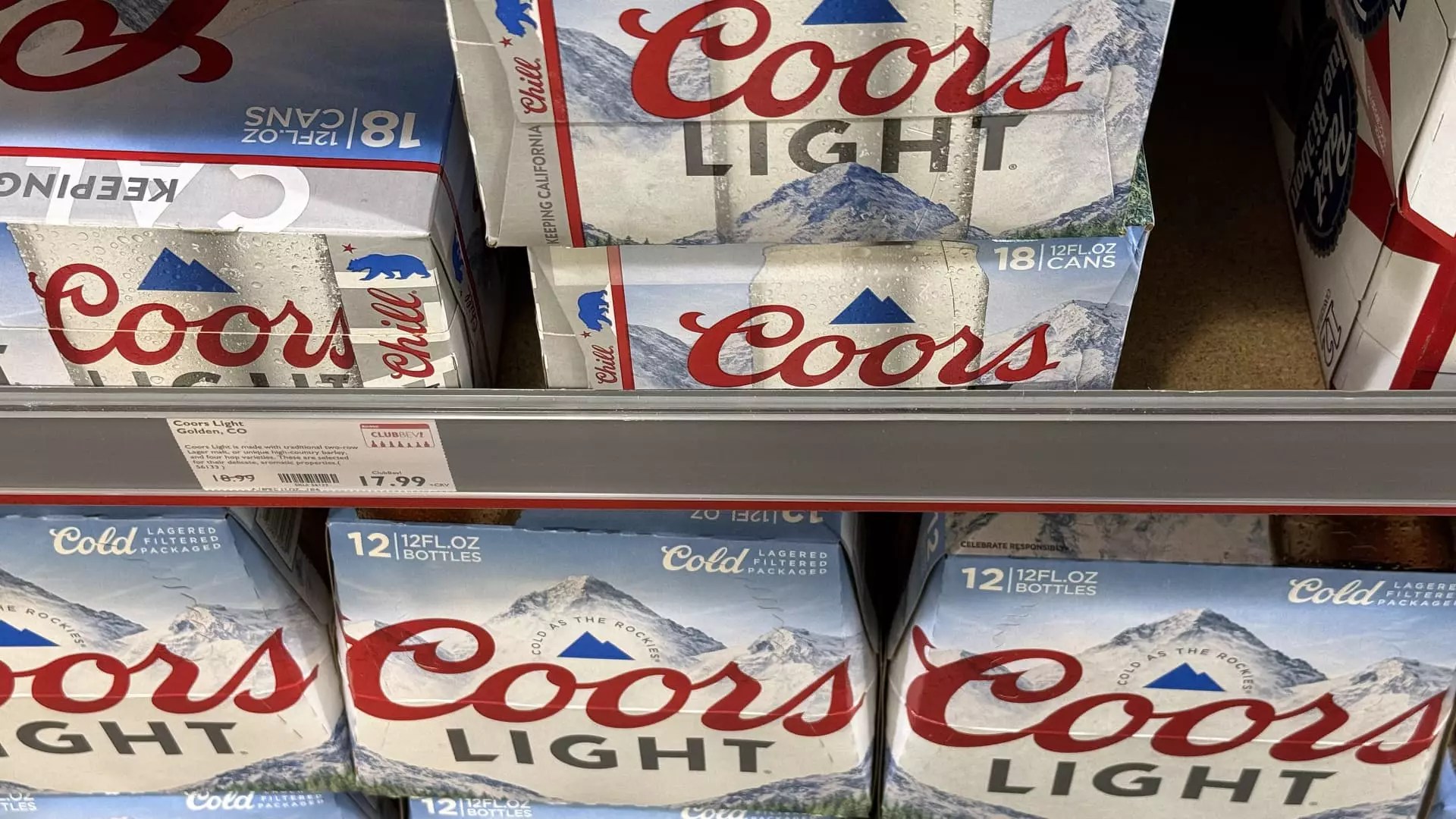Molson Coors recently announced significant changes to its diversity, equity, and inclusion policies, following in the footsteps of several other companies. In an internal memo obtained by CNBC, the company revealed its decision to eliminate supplier diversity quotas. The executives at Molson Coors expressed that these quotas can be complex and influenced by external factors beyond the company’s control. Despite this shift, the company remains committed to ensuring that its suppliers reflect the diverse makeup of its consumer base.
One of the key changes outlined in the memo is the alignment of executive incentives with business performance rather than aspirational representation goals. Beginning next year, Molson Coors will modify its company trainings to concentrate on core business objectives instead of the previous DEI-centric programs. While confirming that all present U.S. employees have completed the existing training, the company is embarking on the development of the “next evolution” of its training initiatives.
Molson Coors plans to rebrand its Employee Resource Groups as Business Resource Groups, indicating a shift in focus while maintaining the groups’ essential functions. In addition, the company has decided to discontinue participation in voluntary third-party company rankings within the U.S., including the Human Rights Campaign’s Corporate Equality Index, where it had previously achieved a perfect score of 100 points. Despite these changes, Molson Coors reassures employees that their benefits will remain unaffected, emphasizing its commitment to fostering an inclusive culture.
The company has also announced a redirection of its corporate charitable giving programs to align with core business objectives. Molson Coors will prioritize areas such as alcohol responsibility, disaster relief efforts, and enhancing access to higher education through its philanthropic initiatives. Notably, the company had previously raised over $700,000 for LGBTQ+-focused organizations nationally through its “Tap Into Change” program and sponsored Pride festivals.
While some have viewed these changes as a reaction to scrutiny from conservative activist Robby Starbuck, Molson Coors asserts that the decision-making process began in March. The company’s shift in its DEI practices comes amid a broader trend of companies reassessing their approach to diversity initiatives. Several retailers, including Tractor Supply, Harley-Davidson, and Lowe’s, have also made adjustments to their diversity policies in recent months.
The renewed focus on corporate DEI practices in response to events like the murder of George Floyd and the Black Lives Matter protests has faced obstacles following the Supreme Court’s decision to overturn affirmative action in colleges. While this ruling primarily impacts academic institutions, there is growing concern among companies that anti-DEI sentiments could permeate corporate America. This uncertainty poses challenges for companies like Molson Coors as they navigate the evolving landscape of diversity and inclusion efforts.
As companies continue to adapt their DEI strategies in response to external pressures and internal considerations, the shifting dynamics of diversity, equity, and inclusion initiatives will remain a focal point in the corporate world. Companies like Molson Coors serve as examples of the ongoing evolution and complexities associated with navigating DEI policies in a rapidly changing environment.


Leave a Reply